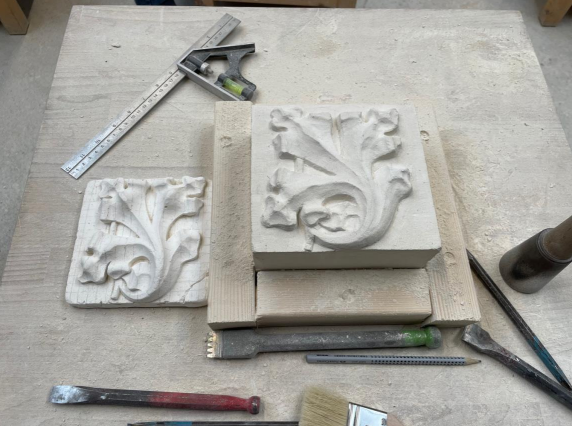 Image: Lucy Wadsworth
Image: Lucy Wadsworth
A huge welcome to our first year students on BA (Hons) Conservation: Stone, Wood & Decorative Surfaces, who have just completed a five day stone carving workshop with Carving Tutor, Mark Frith.
The workshop introduced students to the types of stone commonly used in historic buildings and monuments and gave them an insight into the historic craft skill of stone carving.
After exploring the origins, properties and uses of different types of stone, the new students learnt about the range of tools used in stone carving and how to maintain them, including chisels, dummies (otherwise known as mallets) and chisel sharpeners.
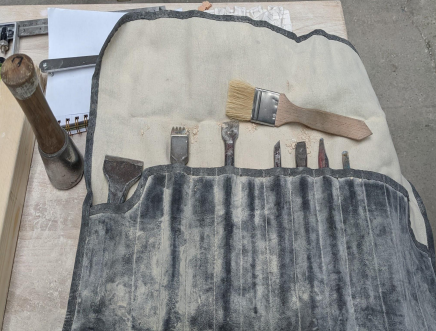
Image: Julian Sonta
Mark went on to give the students an important health and safety brief, highlighting the precautions that must be taken when carving in stone. These include ensuring the space is well ventilated and wearing safety googles and steel toe capped shoes.
Each student was given a block of Levoux stone (a French limestone) and a plaster mould of an acanthus leaf. Their brief was to carve the acanthus leaf relief into the stone by following a step-by-step process used by cavers for centuries.
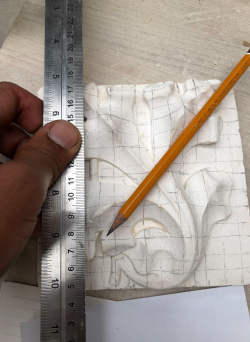
Image: Adrian Gono
Students drew a grid over the acanthus leaf plaster cast and then over their stone block. They then drew the leaf design onto the block, using the grid to ensure accuracy.
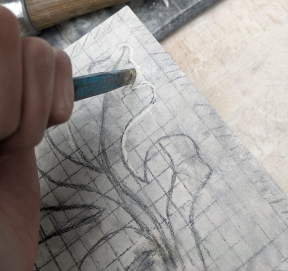
Image: Julian Sonta
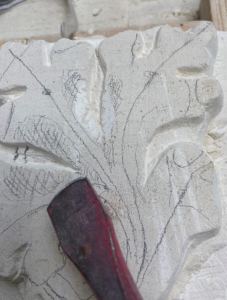
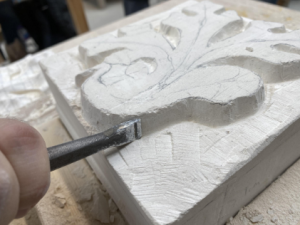
Images: Daniel Abbott; Thomas Yeung
Once the motif was fully mapped out, the students began carefully carving the stone, using a small chisel to start the process. They used Calipers and a T-square to ensure the carving was developing accurately, paying attention to the depth of the carving as well as the outline.
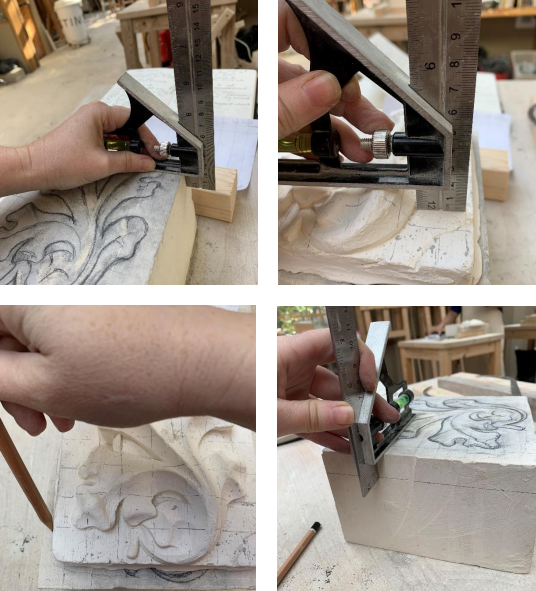
Image: Noilin O’Kelly
After employing further techniques to enhance and define the carving, the Conservation students proudly exhibited their final carved acanthus leaf motifs – brilliant work!
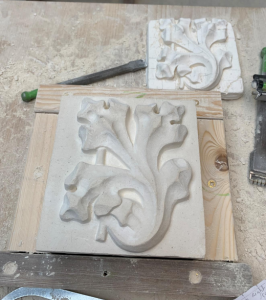
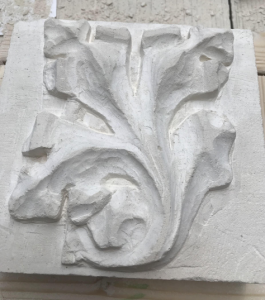
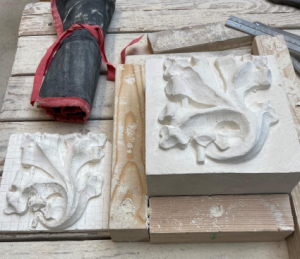
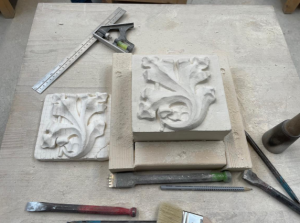
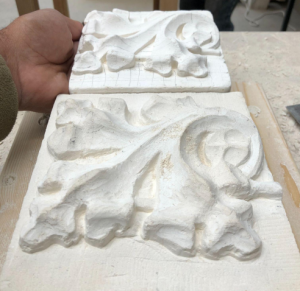
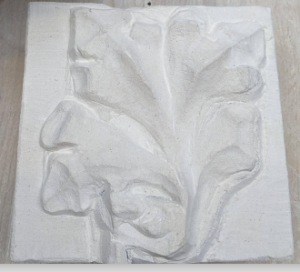
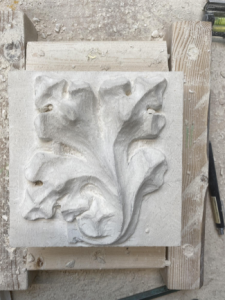
Work by: Noilin O’Kelly; Kathryn Miller; Daniel Abbott; Lucy Wadsworth; Adrian Gono; Julian Sonta; Thomas Yeung
The images included in this blog are from the students’ detailed, non-compulsory process logs, compiled following the workshop.


